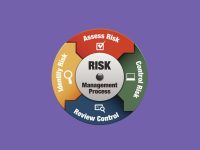Aluminium is used in many aspects of modern life, from the foil that keeps your chocolate fresh to the alloys that launch rockets into space. However, after years of working in the sustainability field, I’ve come to the conclusion that the production process of aluminium is just as important as its final destination.
Aluminium is often praised for being light, strong, and infinitely recyclable. Yet behind these advantages lies an energy-intensive industry with a complex footprint. That is why I want to shed light on one of the more powerful developments I have seen in this space: the adoption of global standards for responsible aluminium production.
The Aluminium Stewardship Initiative (ASI), a multi-stakeholder organisation that works to guarantee aluminium is produced and used in ways that are socially conscious, environmentally sound, and economically feasible, sets one of the most important frameworks in use today.
The Performance Standard and the Chain of Custody Standard are two important standards that ASI created to make this work, and I think that everyone in the industry should be aware of them.
- ASI Performance Standard: The checklist of responsibilities
This criterion is comparable to a physical examination of a business’s level of responsibility. It examines if a business is:
- Observing local communities and human rights
- Making certain that employees receive safe and equitable treatment
- Reducing pollution and deforestation
- Taking climate change seriously
- Making efficient use of water and energy
In my experience, businesses need to show not just written policies, but actual implementation to become certified.
2. ASI Chain of Custody Standard: The aluminium trail
This standard really impressed me. It ensures that responsibly produced aluminium can be tracked all the way from the mine to the end product. It tracks:
- Where the aluminium originated
- How it was processed and handled
- Who was involved in each stage
- Whether it remained ASI-certified throughout
For me, this brings real accountability and gives consumers and businesses confidence that the aluminium they’re using is ethically sourced.
Why this matters to me
We’re living in a world where people increasingly care about the origin of materials. ASI gives us a global system to measure and improve how we source, produce, and deliver aluminium while protecting both people and the planet.
Why this should matter to businesses, especially SMEs
From a business point of view, I believe ASI certification is not just about doing the right thing; it’s also about protecting your bottom line and growing sustainably.
For small and medium-sized enterprises (SMEs), which make up the majority of aluminium businesses, the idea of sustainability sometimes feels expensive or complicated. But in reality, organisations like ASI can help businesses avoid future risks and stay competitive, without facing unnecessary losses. Here’s how:
• Market access: Many large buyers, especially in Europe and North America, now prefer or require ASI-certified aluminium. Being certified means SMEs can enter or stay in these valuable markets.
• Supply chain preference: Larger companies increasingly want responsible suppliers. SMEs with ASI certification are more attractive partners.
• Reputation and trust: Certification builds trust with customers, investors, and regulators. For SMEs, a good reputation can be the difference between winning or losing a contract.
• Operational efficiency: The ASI standards encourage better use of energy, water, and resources. Over time, this can reduce production costs.
• Future-proofing: Regulations on sustainability are growing worldwide. Getting ASI-certified now means SMEs won’t have to scramble to meet new rules later, avoiding disruptions or penalties.
In simple terms, these industry standards help SMEs stay in business, grow their market opportunities, and avoid risks without sacrificing profits. It’s not just about sustainability, it’s smart business.
So next time you hold something made of aluminium, I hope you will remember that it might represent much more than just a shiny surface. It could also carry a story of ethics, sustainability, and global responsibility; and for businesses, a story of smarter, more secure growth.
















